![]()
|
William
Bennett (Hanley) Ltd |
Location and period of operation:
|
William
Bennett |
Hanley |
1882
|
1922 |
|
William
Bennett |
Hanley |
1922
|
1937 |
Earthenware
manufacturer at the Cleveland Works, Victoria Road, Hanley,
Stoke-on-Trent, England
|

William Bennett
Earthenware Manufacturer
Victoria Road, Hanley, Staffordshire
The Pottery Gazette, January 1885

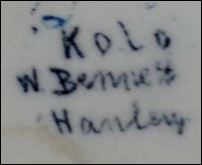
Soap dish in the 'Kolo' pattern
1882-1922
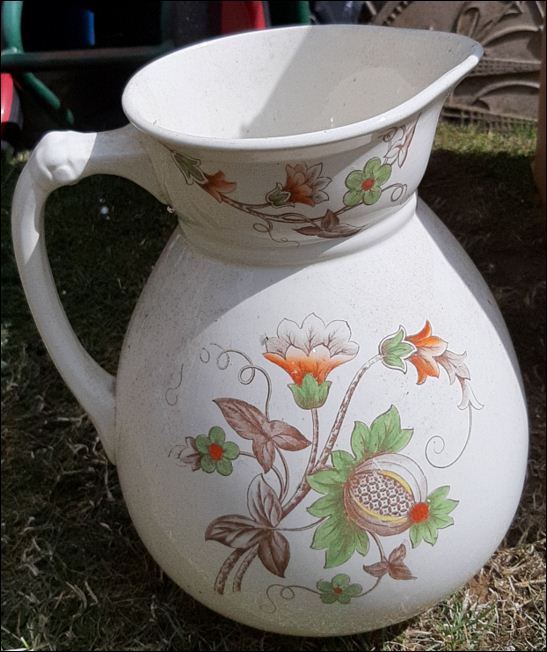
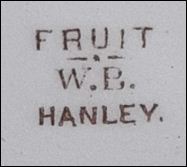
hand coloured brown transfer
ware jug in the fruit pattern
1882-1922
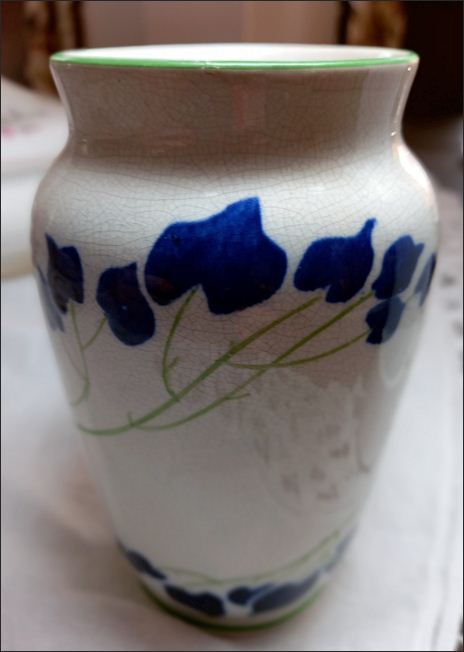 hand painted vase in to Ruskin pattern |
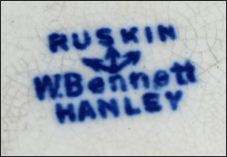 W. Bennett Hanley some marks included a mark which |
photos courtesy: Christine Kingham
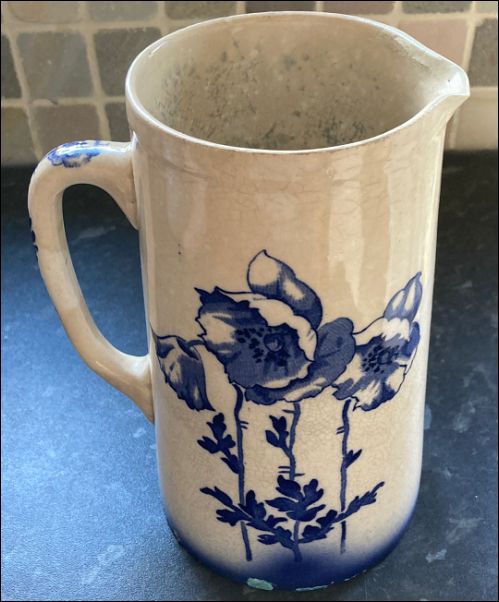 jug in the Trentham transfer ware pattern |
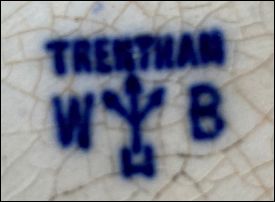 W B H 'H' is for the pottery town of Hanley, where the factory was located the mark includes the triple arrows symbol |
photos courtesy: Derek Peters
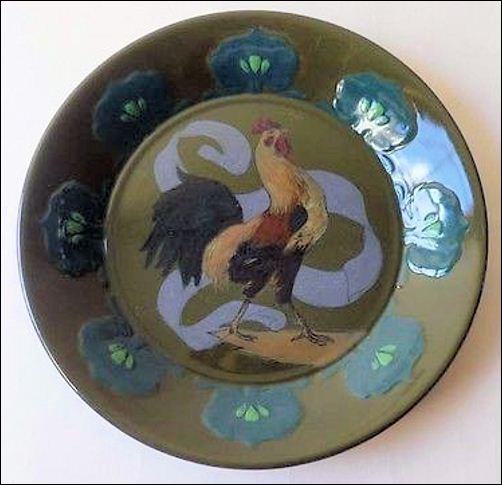
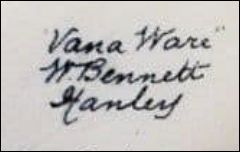
large plate in the Vana ware
range
likely c. 1910-1920
Mabel V Hodgkiss
|
In the 1930s, in order to try to capitalise on the success of Clarice Cliff and Susie Cooper, William Bennett employed Mabel V Hodgkiss (a student of the Burslem School of Art). She was employed to design and decorate in the Deco style of the factories 'rivals'. Including Myott & Sons Ltd who produced Art Deco fan shaped vases. Some
pieces are marked with a registration number - all the known examples
were registered in 1932.
|
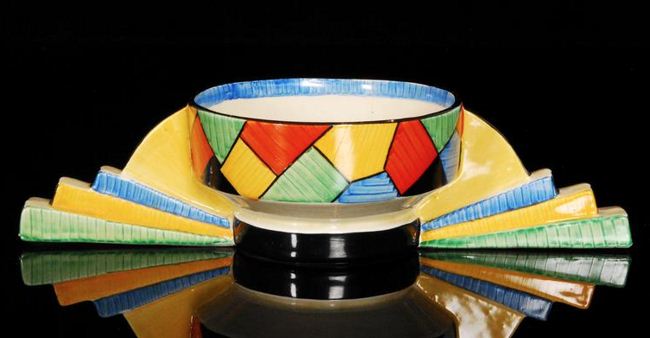 Art Deco style mantel garniture Mabel V Hodgkiss |
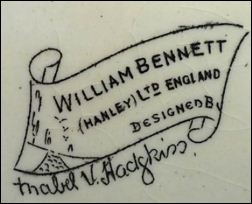 William Bennett (Hanley) Ltd England Designed by Mabel V Hodgkiss |
1930's

one end piece of what would have been a three piece display set |
impressed
mark
the
registration number 777433 shows |
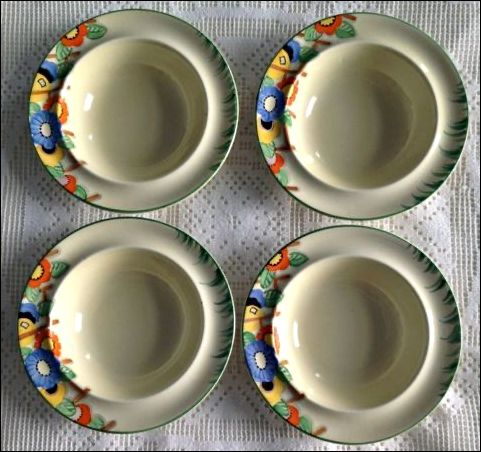 |
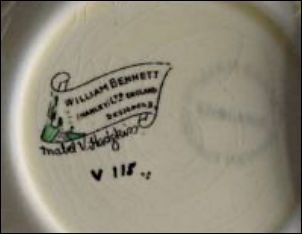
the bowls carry the
'standard' circular |
floral hand decorated dessert
bowls
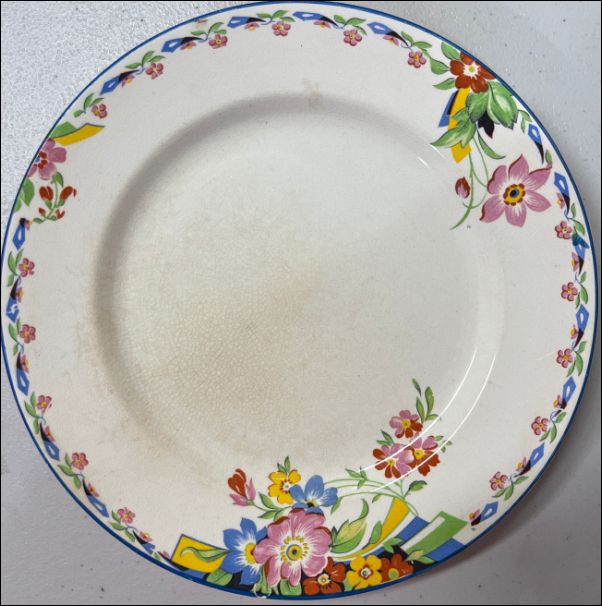 hand decorated plate with floral design and Art Deco influenced geometric shapes |
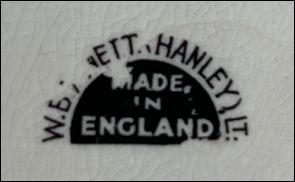 W Bennett (Hanley) Ltd Made in England although the mark does not
mention |
photos courtesy: Roslyn Woodfield
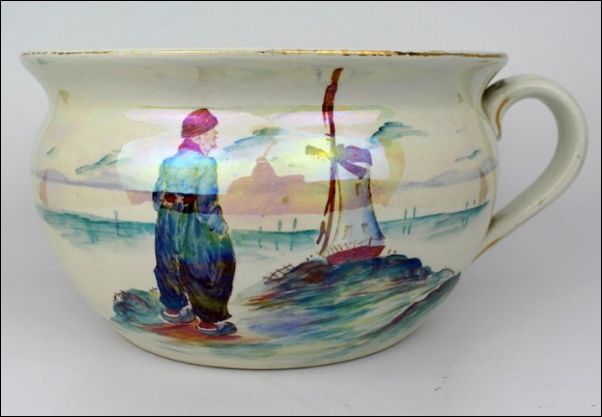 camber pot in a hand painted luster pattern |
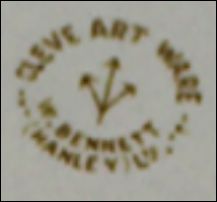 Cleve Art Ware W. Bennett (Hanley) Ltd Godden records the 'Cleve' name |
Marks and initials used on ware for identification:
|
Marks vary - there was no set style of mark. Early marks have the initials WB and other marks include 'H' or Hanley - the town where the works were located. Often the pattern name is included, sometimes a trade name 'Vana Ware' was used. These marks are 1882 to 1922. After 1922 the marks include Hanley as part of the company name - 'William Bennett (Hanley) Ltd.' These marks are 1922 to 1937. The trade name 'Cleve ware' (named after the factory 'Cleveland Works' was introduced in 1930. Some mark include a the triple arrows symbol |
W.B.
H
W BENNETT
HANLEY
WILLIAM BENNETT
HANLEY
 W B H 'H' is for the pottery town of Hanley, where the factory was located |
 W. Bennett Hanley |
 Cleve Art Ware W. Bennett (Hanley) Ltd The trade name 'Cleve ware' (named after the factory 'Cleveland Works' was introduced in 1930. |
some marks include a mark which resembles triple arrows - the reason/origin of this mark is unknown
|
Kolo is the pattern name 1882 -1922 |
 W Bennett Hanley 'Vana Ware' is a trade name likely c. 1910-1920 |

W. B.
Hanley
FRUIT is the pattern name
1882 -1922
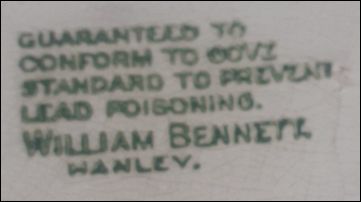
Guaranteed to
conform to GOVT
standards to prevent
lead poisoning.
William Bennett
Hanley
c. 1899 - 1922
|
The reference to prevention of lead poisoning is likely to be an advertising gimmick as the restrictions of lead in pottery glazes was primarily designed to prevent health injury to factory employees and not the general public. Although lead could potentially leach out of improperly fired cooking / eating ware this mark was found on a wash bowl and so there would be no possibility of public health issues through ingestion. Through various Factory Acts workplace safety was improved and in 1899 it was a requirement that no more than 5% standard solubility of lead would be allowed in glazes. Although sometimes difficult to enforce, as a result of these improvements the incidence of lead poising declined significantly. Evidently William Bennett adhered to the government restrictions on the use of lead and wanted to emphasise this. |

William Bennett
(Hanley) Ltd England
Mabel V Hodgkiss
Mabel V Hodgkiss was a student
of the Burslem School of Art,
she was employed at William Bennett in the 1930's to design
and decorate in the Deco style of the factories 'rivals'.
Taking inspiration from Myott and Clarice Cliff,
little is known of Mabel V Hodgkiss.
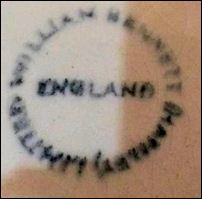
William Bennett
(Hanley) Limited
England
printed mark used c. 1922-37
|
Godden records this printed mark |
 Cleve Art Ware W. Bennett (Hanley) Ltd |
the name 'Cleve' comes from the Cleveland Works where Bennett manufactured
Cleveland Works, Hanley, Stoke-on-Trent
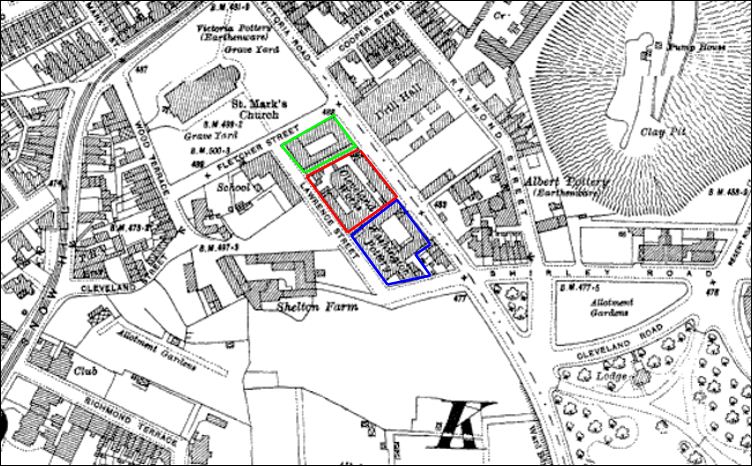
1925 map showing the Cleveland
Works on Victoria Road (now called College Road)
Blue - Washington Works of
Wardle & Co
Red - Cleveland Works of William Bennett
Green - Atlas Works of Gosling & Gatensbury
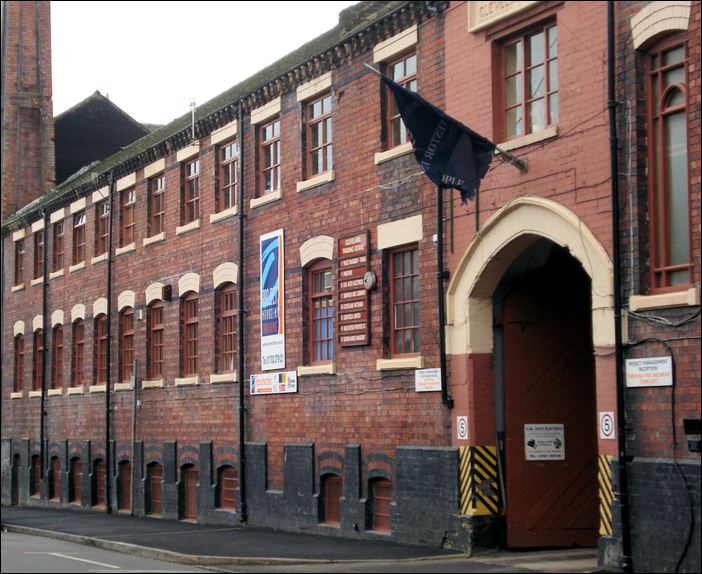
the frontage of the Cleveland
Works
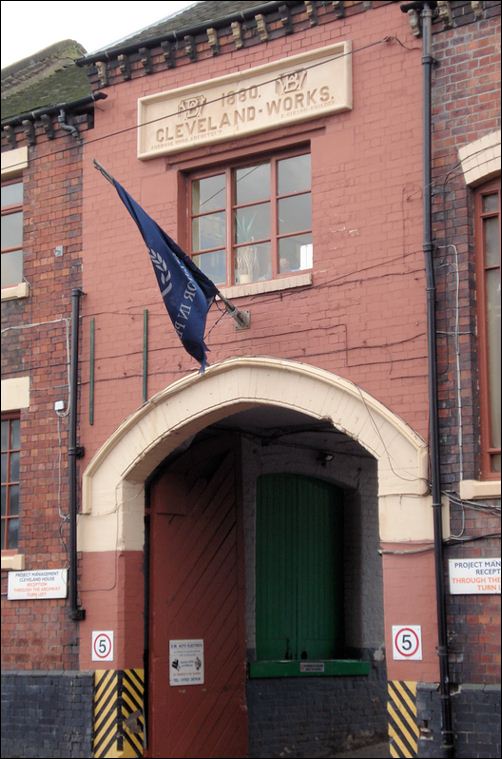
the entrance gate to the
Cleveland Works
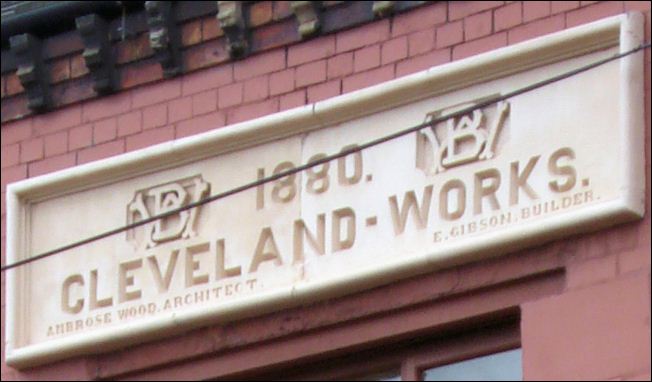
WB
1880 WB
Cleveland - Works
Ambrose Wood - Architect E. Gibson - Builder
Questions, comments, contributions? email: Steve Birks
|
Page created 30 December 2014 Updated 6 Sept 2022: Page completely updated with introduction; examples of ware and marks. Last updated 10 November 2025: Example of Trentham pattern added; examples of 'three arrows' marks added. |